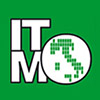Terapia medica adiuvante nel carcinoma gastrico operato radicalmente con fattori prognostici sfavorevoli
Nell’aprile 1992 é stato avviato uno studio sul tumore dello stomaco operato radicalmente.
Lo studio (Protocollo 92/1) aveva lo scopo di determinare se due cicli del regime EAP (etoposide, adriamicina e cisplatino) seguiti da due cicli del regime di Machover (fluorouracile e acido folinico) somministrati come trattamento adiuvante a pazienti con carcinoma gastrico operato radicalmente e fattori prognostici sfavorevoli (N+ oppure T3- T4), (etoposide, adriamicina e cisplatino) seguito dal regime di Machover (fluorouracile e acido folinico) s potessero migliorare la sopravvivenza globale e quella libera da malattia.
Sono stati arruolati 274 pazienti.
Lo studio non ha dimostrato una riduzione significativa del rischio di mortalità nei pazienti trattati con chemioterapia adiuvante, sebbene in un’analisi per sottogruppi è stato evidenziato un certo beneficio della terapia.
Centri partecipanti : Pio Albergo Trivulzio MILANO
Ospedale S. Raffaele, MILANO
Ospedale Fatebenefratelli, MILANO
Ospedale Civile, LEGNANO (MI)
Ospedale C. Poma, MANTOVA
Istituti Ospitalieri, CREMONA
Ospedale Civile di LECCO (CO)
Ospedale Rummo di BENEVENTO
Policlinico di MILANO
Ospedale Civile di VIMERCATE (MI)
Ospedale Civile, VERONA
Ospedale di SARONNO (VA)
Ospedale Vallecamonica, ESINE (BS)
Istituto Nazionale Tumori – OMB, MILANO
Ambulatorio Lega Tumori, SIRACUSA
Ospedale di LENO (BS)
Az. Servizi Sanitari, TRIESTE
Campus Biomedico Univ. di ROMA
Univ./Ist. Medicina Interna, CAGLIARI
Osp. Multizonale di VARESE
Policlinico di PALERMO
Istituto Tumori Fondazione Pascale, NAPOLI
Ospedale degli Infermi, BIELLA (VC)
Ospedale Oncologico, BARI
Spedali Civili, BRESCIA
Ospedale S. Paolo, MILANO
Istituto Europeo di Oncologia, MILANO
Ospedale V. Buzzi, MILANO
Policlinico S. Marco, ZINGONIA (BG)
Centro Oncologico, AREZZO
Policlinico S. Matteo, PAVIA
Ospedale G. Fortunato, RIONERO IN VULTURE (PZ)
Ospedale Evangelico Valdese, TORINO
Riferimenti Bibliografici:
- Adjuvant chemotherapy in gastric cancer: 5-year results of a randomised study by the Italian Trials in Medical Oncology (ITMO) Group.
(Bajetta E, Buzzoni R, Mariani L, Beretta E, Bozzetti F, Bordogna G, Aitini E, Fava S, Schieppati G, Pinotti G, Visini M, Ianniello G, Di BM).
Ann Oncol. 2002 Feb;13(2):299-307.
Abstract
BACKGROUND:
The aim of this study was to determine the efficacy of the EAP regimen (etoposide, adriamycin and cisplatin) followed by the Machover schedule (fluorouracil and folinic acid) given as adjuvant treatment to patients with poor prognostic factors (N+ or T3/4).
PATIENTS AND METHODS:
Before randomisation, the subjects were stratified on the basis of node involvement (N+ or N-) and the time from surgery to randomisation (< or = 21 days or > 22 days). The surgical procedures for sub-total or total gastrectomy with D2 dissection were standardised among the participating centres.
RESULTS:
Between December 1992 and December 1997, 274 patients were enrolled: 137 in the treatment arm and 137 in the control arm. The majority of the patients (90%) were N+. After a median follow up of 66 months (range 2-83), the 5-year overall survival (OS) was 52% in the treatment arm and 48% in the control arm [hazard ratio (HR) 0.93; 95% confidence interval (CI) 0.65-1.34]; the 5-year disease-free survival (DFS) was 49% and 44%, respectively (HR: 0.83; 95% CI 0.59-1.17). Among the patients with N-/N+ (1-6), the 5-year OS was 61% in the treatment group and 60% in the control group; in those with N+ (1-6), it was 42% and 22%. The treatment was completed by 87% of patients. Drug-related grade 3/4 WHO toxicities included leukopenia (21%), nausea and vomiting (14%), mucositis (9%), neutropenia (3%) and thrombocytopenia (2%). There were two deaths due to sepsis.
CONCLUSIONS:
Although our results are not statistically significant, there was a limited relative risk reduction in the patients receiving adjuvant therapy (17% in DFS and 7% in OS). The data suggest that D2 surgery may have a favourable impact on OS.
PMID: 11886009 [PubMed – indexed for MEDLINE]
Download articolo: Ann Oncol-2002-Bajetta-299-307
- Pathological features as predictors of recurrence after radical resection of gastric cancer.
(Buzzoni R, Bajetta E, Di Bartolomeo M, Miceli R, Beretta E, Ferrario E, Mariani L).
Br J Surg. 2006 Feb;93(2):205-9.
Abstract
BACKGROUND:
The aim of this study was to investigate the pattern and timing of recurrence and to determine associated risk factors after radical resection of gastric cancer including D2 dissection.
METHODS:
A total of 274 patients who had undergone radical resection of gastric cancer with nodal involvement or T3-4 tumour were randomized to receive chemotherapy or no further treatment (control group). Locoregional recurrence and distant metastasis were analysed in a competing risks framework, by estimating the crude cumulative incidence in each group. Multiple regression models were used to investigate the influence of treatment and pathological features on the risk of recurrence.
RESULTS:
Overall, the 7 year rate of locoregional relapse was 15.8 per cent and that of distant recurrence was 34.5 per cent. There was a significant association between pathological node (pN) stage and distant relapse (P < 0.001), and between pathological tumour (pT) stage and locoregional recurrence (P = 0.024). Chemotherapy had no significant effect on either locoregional or distant recurrence.
CONCLUSION:
The rate of locoregional recurrence after radical surgery for gastric cancer was lower than that in studies based on more conservative surgery. The pT stage was related to the rate of locoregional recurrence whereas pN stage had an impact on distant recurrence.
PMID: 16363019 [PubMed – indexed for MEDLINE]
Download articolo: Brit. J. Surg. 2006

